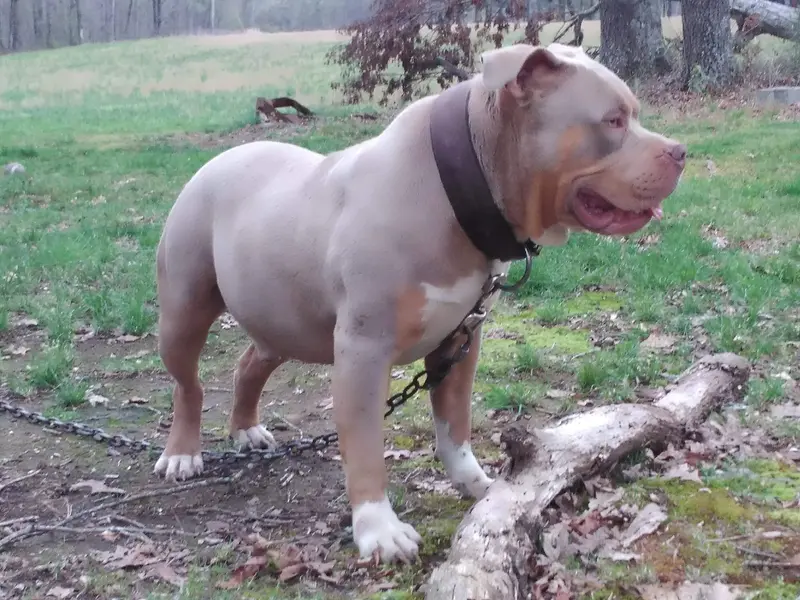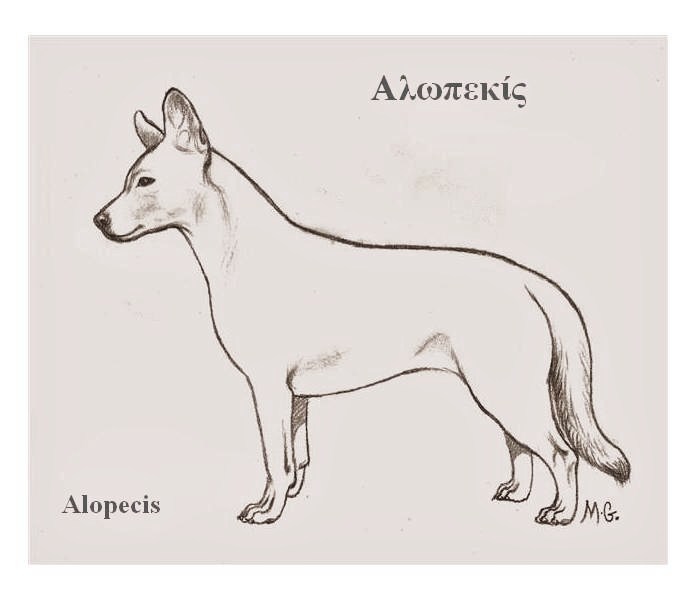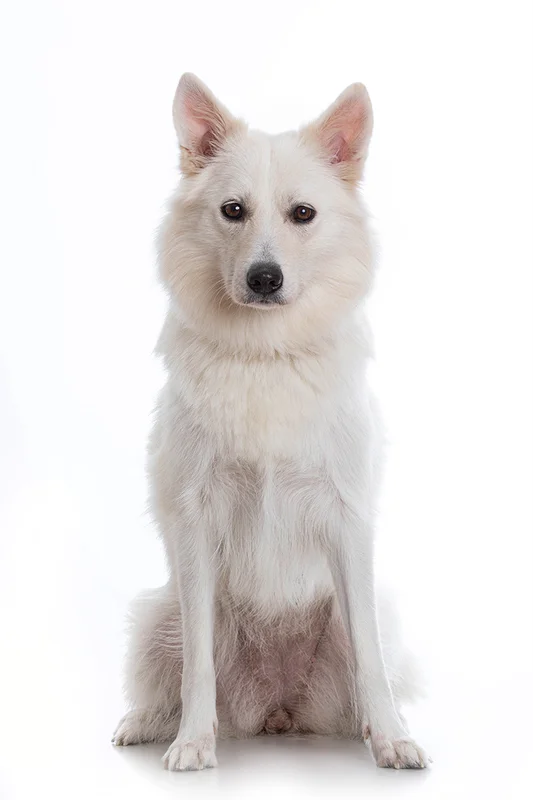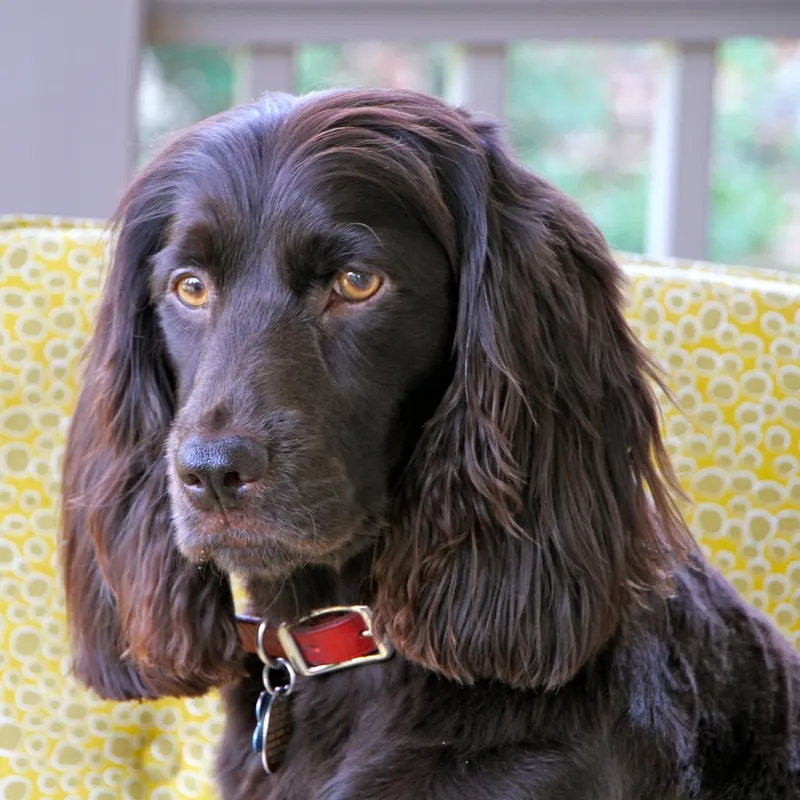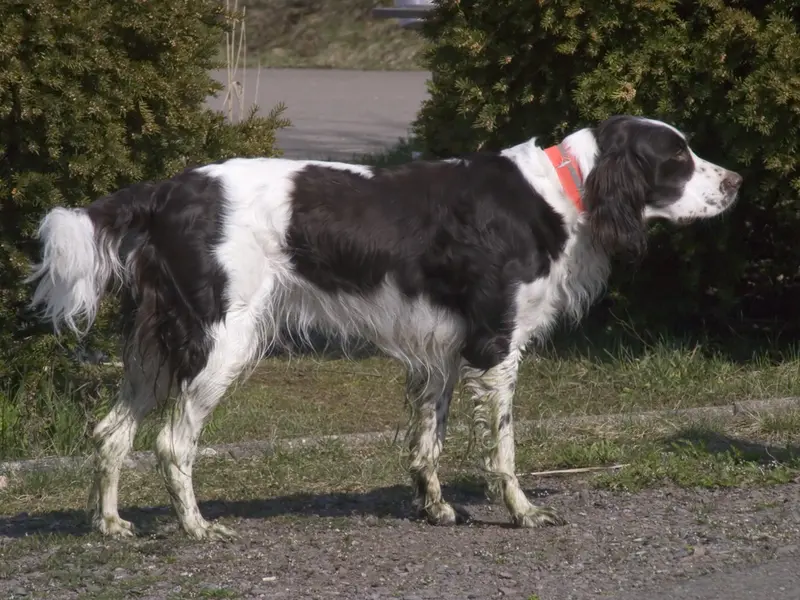Rache
Also known as: Rach, Rache Dog, Rachie
The Rache is a lively and intelligent mixed breed, known for its loyalty and adaptability. Perfect for active families, they thrive on exercise and companionship.
⚡At a glance
🏆Best traits
Key Facts
- Height
- 46-61 cm
- Weight
- 18-34 kg
- Life Span
- 12 - 15 years
- Group
- Mixed Breed
- Origin
- No information
- Shedding
- Moderate
- Exercise
- 90 min/day
- Best For
- Families, Active Owners, First-Time Owners
Overview
🐕Breed Overview
✨Key Traits
💡What Makes Rache Special
The Rache breed stands out for its remarkable intelligence and adaptability. They are quick learners, often mastering new commands and tricks with ease.
Their playful nature makes them excellent companions for active families, as they thrive on playtime and outdoor adventures. Rache dogs are also known for their strong bonds with their human companions, often seeking affection and attention.
Their versatility allows them to excel in various roles, from family pets to service dogs, showcasing their ability to adapt to different lifestyles and environments. This breed's friendly disposition and eagerness to please make them a joy to have around, ensuring they fit well into family life.
The Rache breed is a dynamic and energetic mixed breed that has captured the hearts of dog lovers everywhere. With a history rooted in the desire to create a versatile companion, Rache dogs are known for their intelligence, loyalty, and playful nature. They thrive in active households where they can participate in outdoor adventures and engage in stimulating activities.
Their friendly demeanor makes them excellent family pets, and they often form strong bonds with their human companions. Rache dogs excel in various roles, from therapy and service work to agility and obedience competitions, showcasing their adaptability and eagerness to please. Living with a Rache means embracing an active lifestyle, as they require ample exercise and mental stimulation to stay happy and healthy.
Their playful spirit and affectionate nature make them a joy to have around, and they often get along well with children and other pets. However, potential owners should be prepared for the commitment of training and socialization to ensure a well-rounded and well-behaved companion. With proper care and attention, Rache dogs can be a delightful addition to any family, bringing joy, laughter, and a sense of adventure to everyday life.
🎉Fun Facts
Many Rache dogs have a strong instinct to herd, which can lead to amusing behaviors when they try to herd family members or other pets.
Rache dogs are known for their unique ability to learn tricks quickly, often impressing their owners with their intelligence.
Rache dogs often excel in agility competitions due to their agility and speed, showcasing their athleticism.
They have a playful nature and enjoy interactive games, making them great companions for children.
Breed Characteristics
Family & Friends
Good Behavior
Get Up & Go
Household Harmony
Temperament & Personality
✨Key Traits
🐕Core Temperament
Rache dogs are known for their friendly and outgoing temperament. They are typically very social and enjoy interacting with people and other animals.
Their playful nature makes them great companions for children, as they are patient and gentle. Rache dogs are also protective of their families, displaying loyalty and a willingness to defend their loved ones if necessary.
However, they require proper socialization to ensure they are well-adjusted and comfortable in various situations. Their intelligence and eagerness to please make them responsive to training, allowing them to thrive in family environments.
💫Personality Profile
Rache dogs are characterized by their energetic and playful nature. They thrive on interaction with their families and are known for their loyalty and affection.
These dogs are intelligent and eager to learn, making them highly trainable. They enjoy being part of family activities and often seek companionship, whether through play or simply being close to their owners.
Rache dogs typically get along well with children and other pets, displaying a friendly demeanor. Their playful spirit means they require regular exercise and mental stimulation to keep them happy and prevent boredom-related behaviors.
🔊Vocal Tendencies
Rache dogs have a moderate noise level, with a tendency to bark when excited or alerting their owners to new stimuli. They may bark when playing, greeting people, or expressing their enthusiasm.
While they are not excessive barkers, their vocalizations can vary based on their mood and environment. Owners should be mindful of their barking tendencies, especially in apartment settings, and provide training to manage excessive vocalizations if necessary.
Affection & Social Traits
Big-hearted and highly social — here’s how it shows up day to day.
Energy & Activity
High-octane companion — great for matching your routine.
Communication Style
Moderately talkative — a quick read on noise at home.
Care Requirements
🏃♂️Exercise Requirements
Daily Exercise
Rache dogs are known for their high energy levels and require a significant amount of exercise to stay healthy and happy. Ideally, they need at least 60 to 90 minutes of vigorous exercise each day. This can be broken down into multiple sessions, including brisk walks, runs, or playtime in a secure area.
Activities such as fetching, swimming, and engaging in dog sports like agility or flyball are particularly beneficial as they cater to the breed's natural instincts and energy levels. Puppies may require shorter, more frequent exercise sessions to avoid overexertion, while senior dogs may benefit from gentler activities like leisurely walks or swimming to maintain their fitness without straining their joints. Regular exercise not only helps manage their weight but also promotes cardiovascular health and reduces behavioral issues stemming from pent-up energy.
Insufficient exercise can lead to destructive behaviors, anxiety, and an increased risk of obesity and related health problems.
Preferred Activities
🏠Living & Adaptability
Space Requirements
Rache dogs thrive in environments that provide ample space for them to run and play. Ideally, they should have access to a large yard or open area where they can engage in vigorous activities.
However, they can adapt to apartment living if their exercise needs are met through regular outdoor activities. Owners in smaller spaces should ensure daily outings to parks or open fields, and consider using interactive toys or puzzle games to keep their minds stimulated.
The breed's size and energy level necessitate a space where they can move freely; otherwise, they may exhibit signs of frustration or anxiety, leading to destructive behaviors.
Climate Preference
🍲Feeding Guide
Schedule
Food Types
Portion Size
Special Nutritional Needs
Rache dogs may have specific dietary requirements based on their activity levels and health conditions. It's important to provide a balanced diet rich in protein and essential nutrients to support their energy needs.
Some Rache dogs may be prone to food sensitivities, so monitoring their reactions to new foods is crucial. Consulting with a veterinarian for personalized dietary recommendations is advised.
✨Grooming Requirements
Grooming Overview
Rache dogs typically have a coat that requires moderate grooming. Depending on their specific mix, they may have a short to medium-length coat that sheds moderately.
Regular brushing, at least once a week, is recommended to remove loose hair and prevent matting. Bathing should be done as needed, usually every 4-6 weeks, to keep their coat clean and healthy.
Nail trimming should be done every 2-4 weeks, and regular dental care is essential to maintain oral health. Owners should also check their ears for wax buildup and clean them as necessary to prevent infections.
Care Schedule
Brush weekly, bathe every 4-6 weeks, trim nails every 2-4 weeks.
Health Profile
⚕️Health Care
Regular health care is vital for extending the lifespan of Rache dogs. Routine veterinary check-ups, vaccinations, and preventive treatments can help detect health issues early and maintain optimal health.
Owners should establish a healthcare routine that includes regular dental care, parasite prevention, and monitoring for any signs of illness. Early detection and intervention can significantly impact the quality of life and longevity of Rache dogs.
Health Issues Overview
⏳Average Lifespan
Genetic Factors
Genetics play a crucial role in the lifespan of Rache dogs, as mixed breeds can inherit health issues from their parent breeds. Responsible breeding practices that prioritize health and genetic diversity can help mitigate hereditary health problems.
Potential owners should seek reputable breeders who conduct health screenings and provide transparency about the lineage of their dogs. Understanding the genetic background of a Rache can help owners anticipate potential health issues and take proactive measures to ensure their dog's well-being.
Living Conditions
The lifespan of Rache dogs can be significantly influenced by their living environment. Dogs that have access to outdoor spaces for exercise and play tend to live longer, healthier lives.
A stimulating environment that includes regular social interactions, mental challenges, and physical activities contributes positively to their overall well-being. Conversely, dogs that are confined to small spaces without adequate exercise may experience stress and health issues, leading to a shorter lifespan.
Owners should ensure that their Rache has a balanced lifestyle that includes both physical and mental stimulation to promote longevity.
🏥Common Health Issues
Hip Dysplasia
Warning Signs
🔬Diagnosis
Veterinarians typically diagnose hip dysplasia through physical examinations and X-rays.
💊Treatment
Treatment options may include weight management, physical therapy, medications, or surgery in severe cases.
📝Management Tips
Maintain a healthy weight, provide joint supplements, and engage in low-impact exercises to support joint health.
Allergies
Warning Signs
🔬Diagnosis
Allergies can be diagnosed through skin tests or elimination diets.
💊Treatment
Treatment may include antihistamines, corticosteroids, or allergy shots.
📝Management Tips
Identify and avoid allergens, provide hypoallergenic food, and consult a veterinarian for appropriate medications.
Obesity
Warning Signs
🔬Diagnosis
Obesity is diagnosed through physical examinations and body condition scoring.
💊Treatment
Weight loss programs, dietary changes, and increased physical activity.
📝Management Tips
Monitor food intake, provide regular exercise, and consult a veterinarian for weight management plans.
🛡️Preventive Care
🔬Hip Evaluation
Hip Evaluation assesses the hip joints for dysplasia and other abnormalities, crucial for preventing joint issues.
📅 Recommended annually for young dogs and as needed for older dogs.
🔬Allergy Testing
Allergy Testing identifies specific allergens affecting the dog, helping to manage and treat allergic reactions effectively.
📅 Conducted as needed, especially if symptoms arise.
🔬Weight Assessment
Weight Assessment evaluates the dog's body condition and helps in managing obesity risks.
📅 Recommended at each veterinary visit.
Training
🧠Intelligence & Trainability
💪Work Drive
Rache dogs possess a strong work drive, stemming from their mixed heritage of working breeds. They thrive when given tasks or jobs to do, whether it's participating in dog sports, engaging in obedience training, or simply helping with daily activities around the house.
Providing them with mental challenges, such as scent work or agility courses, is essential for their well-being. Insufficient mental stimulation can lead to boredom and undesirable behaviors, so it's important to keep them engaged with a variety of activities that cater to their natural instincts.
⚠️Training Considerations
Rache dogs can exhibit behavioral challenges such as stubbornness or high energy levels that may lead to hyperactivity if not properly managed. These challenges often stem from their intelligence and need for mental stimulation.
To overcome these obstacles, consistent training methods that incorporate positive reinforcement are essential. Engaging them in regular training sessions, socialization opportunities, and providing them with interactive toys can help channel their energy constructively.
Additionally, establishing a routine and setting clear boundaries will aid in managing their behavior effectively.
📝Training Tips
Training a Rache dog requires patience and consistency. Start with basic obedience commands, using positive reinforcement techniques such as treats and praise to encourage desired behaviors.
Incorporate mental stimulation through puzzle toys and interactive games to keep them engaged. Socialization is crucial; expose them to various environments, people, and other animals from a young age to foster well-rounded behavior.
Regular training sessions should be kept short and fun to maintain their interest. Consider enrolling in obedience classes or agility training to further enhance their skills and strengthen the bond between owner and dog.
History & Heritage
📜Origin Story
The Rache breed's origin story is rooted in the blending of various breeds, aimed at producing a dog that embodies the best characteristics of its ancestors. While specific historical details are scarce, it is believed that the breed was developed in response to the growing demand for versatile family pets that could also perform tasks such as herding, retrieving, and providing companionship.
As mixed breeds gained popularity, the Rache emerged as a favored choice among dog enthusiasts seeking a loyal and energetic companion. The breed's adaptability to different lifestyles and environments has contributed to its rise in popularity, making it a beloved choice for many families.
⏳Development History
The Rache breed emerged from the desire to combine the best traits of several working and sporting breeds. Over time, breeders focused on creating a dog that is not only intelligent and trainable but also possesses a friendly and adaptable temperament.
This breed has evolved to meet the needs of modern families, excelling in various roles, from active companions to service dogs. The emphasis on health and temperament in breeding practices has led to a more robust and versatile dog, capable of thriving in diverse environments and lifestyles.
🛡️Purpose & Historical Role
Historically, the Rache breed was developed to fulfill various roles, including herding, retrieving, and companionship. Their intelligence and eagerness to work made them valuable assets on farms and in hunting scenarios.
In modern times, Rache dogs have transitioned into family pets, therapy dogs, and even service animals, showcasing their versatility and ability to adapt to different environments. Their friendly nature and strong bond with humans have solidified their place in households, where they continue to thrive as loyal companions.
🏺Cultural Significance
The Rache breed, a mix of various working and sporting breeds, has gained popularity in recent years due to its versatility and adaptability. These dogs often serve as family companions, therapy dogs, and even in search and rescue operations.
Their intelligence and eagerness to please make them suitable for various roles in society, reflecting the growing trend of mixed breeds being recognized for their unique qualities and abilities. The Rache's presence in popular culture has been bolstered by social media, where owners showcase their dogs' talents and personalities, further enhancing the breed's appeal.
Conservation Status
The breed exists today and isn’t classified as extinct.
Often found in multiple regions; easier to encounter.
This breed is well-established with healthy population numbers.
?Frequently Asked Questions
Is the Rache good for apartment living?
The Rache can be moderate when it comes to apartment living. With adequate daily exercise and mental stimulation, apartment life can work, but they would benefit from more space. Regular walks and interactive play sessions are important for their well-being.
How much does a Rache shed?
The Rache has a moderate shedding level. You can expect some hair around the house, especially during seasonal changes. Regular brushing a few times per week will help keep shedding under control.
Are Raches easy to train?
Yes, the Rache is quite easy to train and generally eager to please their owners. They respond well to positive reinforcement and can pick up new commands relatively quickly. This makes them a good choice for both experienced and first-time dog owners.
How long do Raches live?
The average lifespan of a Rache is 12 - 15 years. Lifespan can be influenced by genetics, diet, exercise, and overall health care. Regular veterinary check-ups and a healthy lifestyle can help your Rache live a long and happy life.
Is the Rache good with kids?
Absolutely! The Rache is exceptionally good with children and makes a wonderful family companion. They are patient, gentle, and often form strong bonds with the younger members of the family. Their tolerant nature and playful spirit make them a top choice for households with kids.
How much exercise does a Rache need?
The Rache is a high-energy breed that needs approximately 90 minutes of exercise daily. They thrive with vigorous activities such as running, hiking, or interactive games. Without adequate exercise, they may develop behavioral issues from pent-up energy.
Is the Rache good with other pets?
Yes, the Rache generally does well with other pets. Their friendly and adaptable nature helps them coexist peacefully in multi-pet households. Early socialization helps ensure the best relationships with other animals.

